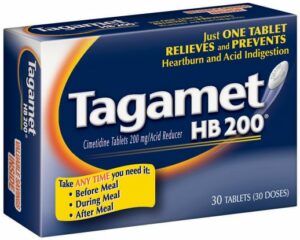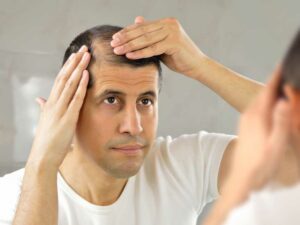Abstract:
BACKGROUND: The pathogenesis of androgenic alopecia is not fully understood. A microbial-driven inflammatory reaction abutting on the hair follicles might participate in the hair status anomaly.
OBJECTIVE: The aim of our study was to determine if ketoconazole (KCZ) which is active against the scalp microflora and shows some intrinsic anti-inflammatory activity might improve alopecia.
METHOD: The effect of 2% KCZ shampoo was compared to that of an unmedicated shampoo used in combination with or without 2% minoxidil therapy.
RESULTS: Hair density and size and proportion of anagen follicles were improved almost similarly by both KCZ and minoxidil regimens. The sebum casual level appeared to be decreased by KCZ.
CONCLUSION: Comparative data suggest that there may be a significant action of KCZ upon the course of androgenic alopecia and that Malassezia spp. may play a role in the inflammatory reaction. The clinical significance of the results awaits further controlled study in a larger group of subjects.
Author:
Pierard-Franchimont C. De Doncker P. Cauwenbergh G. Pierard GE.
Source:
Dermatology. 196(4):474-7, 1998.
Address:
Department of Dermatopathology, University of Liege, Belgium.
Language:
English





